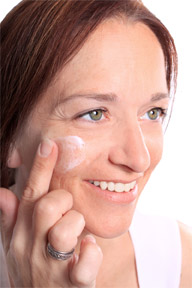Why Hospitals Need Medical Interpreters
 Lia Lee, the child of Hmong-speaking parents, died as much from miscommunication as from illness. When Lia was a few months old, she started experiencing seizures. Twice, she was wrongly diagnosed with pneumonia because her parents couldn’t describe her symptoms to her doctors. When she was finally diagnosed, she was prescribed a complex regimen of medications that her parents couldn’t understand how to administer. With doctors and parents unable to communicate, Lia experienced a grand mal seizure.
Lia Lee, the child of Hmong-speaking parents, died as much from miscommunication as from illness. When Lia was a few months old, she started experiencing seizures. Twice, she was wrongly diagnosed with pneumonia because her parents couldn’t describe her symptoms to her doctors. When she was finally diagnosed, she was prescribed a complex regimen of medications that her parents couldn’t understand how to administer. With doctors and parents unable to communicate, Lia experienced a grand mal seizure.
Unfortunately, the Lees’ experience is not uncommon. According to the 2000 Census, over 21 million Americans speak English less than “very well,” and 22.5 percent of Asian and Pacific Islander speakers either don’t speak English well or can’t speak it at all.
Some people have family members to help them, but that can lead to other problems. If a husband acts as an interpreter for his wife, the doctor will have difficulty asking her about spousal abuse. Even when family members mean well, they are not medical experts and may mistranslate or fail to report every symptom that the patient describes.
In a 2003 study, researchers analyzed 13 patient-doctor encounters that involved an ad hoc interpreter, such as a nurse, social worker or siblings. On average, these interpreters made 31 mistakes per encounter. Seventy-seven percent of these errors could have had clinical consequences.
Hospitals can help avoid mistakes by using medical interpreters, or trained professionals who can facilitate communication between patients and doctors. Hospitals are required to offer translators, but it’s an unfunded mandate; only 13 states offer Medicaid reimbursement for interpreters.
If healthcare reform truly aims to improve patient care, it must improve communication. Reimbursing hospitals for providing medical interpreters will not only save lives, but also prevent needless errors and reduce overall costs.
“In addition to improving quality of care and patient safety, language services reimbursement would alleviate the financial burden faced by hospitals with a large population of Limited English Proficient patients.” said Mursal Khaliif, senior director of multilingual services at Cambridge Health Alliance, a Harvard University Medical School Teaching Hospital in Cambridge, Mass.
The International Medical Interpreter’s Association has been leading the fight for reimbursement. For more information, visit www.imiaweb.org.






 (
(